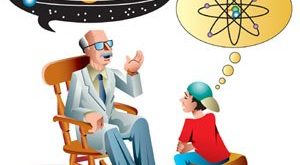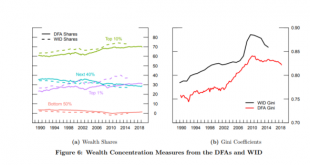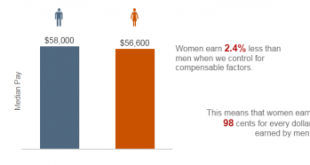from Steve Keen The pedagogic pressure from students and the wider community has to be matched by the accelerated development of alternatives to neoclassical economics. Though we know much more today about the innate flaws in neoclassical thought than was known at the time of the Great Depression (Keen 2001), the development of a fully-fledged alternative to it is still a long way off. There are multiple alternative schools of thought extant – from Post Keynesian to Evolutionary and...
Read More »Revisiting the foundations of randomness and probability
from Lars Syll Regarding models as metaphors leads to a radically different view regarding the interpretation of probability. This view has substantial advantages over conventional interpretations … Probability does not exist in the real world. We must search for her in the Platonic world of ideals. We have shown that the interpretation of probability as a metaphor leads to several substantial changes in interpretations and justifications for conventional frequentist procedures. These...
Read More »New distributional financial accounts from the Federal Reserve!
The Federal Reserve (Fed) publishes the Flow of Funds. It has recently made an important addition to these invaluable financial data: quarterly distributional financial accounts. They are more frequent, more detailed and much faster than existing accounts. Why did they do this? For one thing: distributional accounts are not a new idea. As stated in their first footnote (but note the gap between the fifties and 2014): For example, Carroll (2014) cites the need for distributional national...
Read More »Economic causes never act in a socio-economic vacuum
from Lars Syll Our observations and theories are concept-dependent without therefore necessarily being concept-determined. There is a reality that exists independently of our knowledge and theories. Although we cannot comprehend it without using our concepts and theories, these are not the same as reality itself. Social science is relational. It studies and uncovers the social structures in which individuals participate and position themselves. It is these relations that have sufficient...
Read More »Critical thinking is not always appreciated
from Peter Söderbaum Economists like other people are political economic persons guided by their ideological orientation. We are eager to become accepted in some social groups. Just as political parties often are afraid of departing too much from one another, an economist may prefer a comfortable life by positioning herself close to other economists with respect to conceptual framework and ideology. Accepting the norms and standards of neoclassical economics is rewarding and constitutes...
Read More »A quick note: utopian or real?
from Peter Radford Just a brief follow-on to my recent comments on the role of economics and its relationship with power and/or politics. I pulled out my old copy of Polanyi’s “The Great Transformation” to refresh my memory of his position on the topic. Recall that he talked about the way in which economic activity is embedded within the larger social and political fabric. Mainstream economists must shudder at such a thought. Isn’t economics superior and more “scientific” than...
Read More »War and inequality rackets
from Ken Zimmerman Again, history can teach us. Looking back to the post-World War I period, the soul-searchingly pejorative “merchants of death” rhetoric was in vogue. One of the most outspoken critics of war profiteering was Marine Major General Smedley Butler, a two-time Congressional Medal of Honor recipient who had spent his 34-year career in uniform dutifully fighting various colonial wars at the turn of the 20th century. His highly publicized 1935 speech/short book “War is a...
Read More »Keynes’ General Theory at 80 – lessons learned and lost
from Lars Syll A couple of years ago — when visiting one of Helsinki’s many nice cafés and restaurants — yours truly read the following inscription on a mirror and thought Keynes must have been here … Anyhow — slides from yours truly’s keynote presentation at the Kalevi Sorsa Foundation celebration of the 80th anniversary of Keynes’ General Theory is available here.
Read More »Mathematics and the constructions and emergent outcomes of socioeconomic phenomena
from Ikonoclast When we are dealing with physical phenomena, the fundamental laws of the cosmos are independent of human understanding or modelling of them. No matter what you or I or any human thinks of the Laws of Thermodynamics or even whether we are ignorant of them, the fundamental phenomena follow a course which can be well modeled by those laws when those laws are mathematicized to permit accurate descriptions and empirically verifiable predictions. However, when it comes to...
Read More »Why do women still earn less than men?
from Lars Syll Spending the morning going through Francine Blau’s and Lawrence Kahn’s JEL survey of modern research on the gender wage gap, yours truly was struck almost immediately how little that research really has accomplished in terms of explaining gender wage discrimination. With all the heavy regression and econometric alchemy used, wage discrimination is somehow more or less conjured away … Trying to reduce the risk of having established only ‘spurious relations’ when dealing with...
Read More » Real-World Economics Review
Real-World Economics Review




